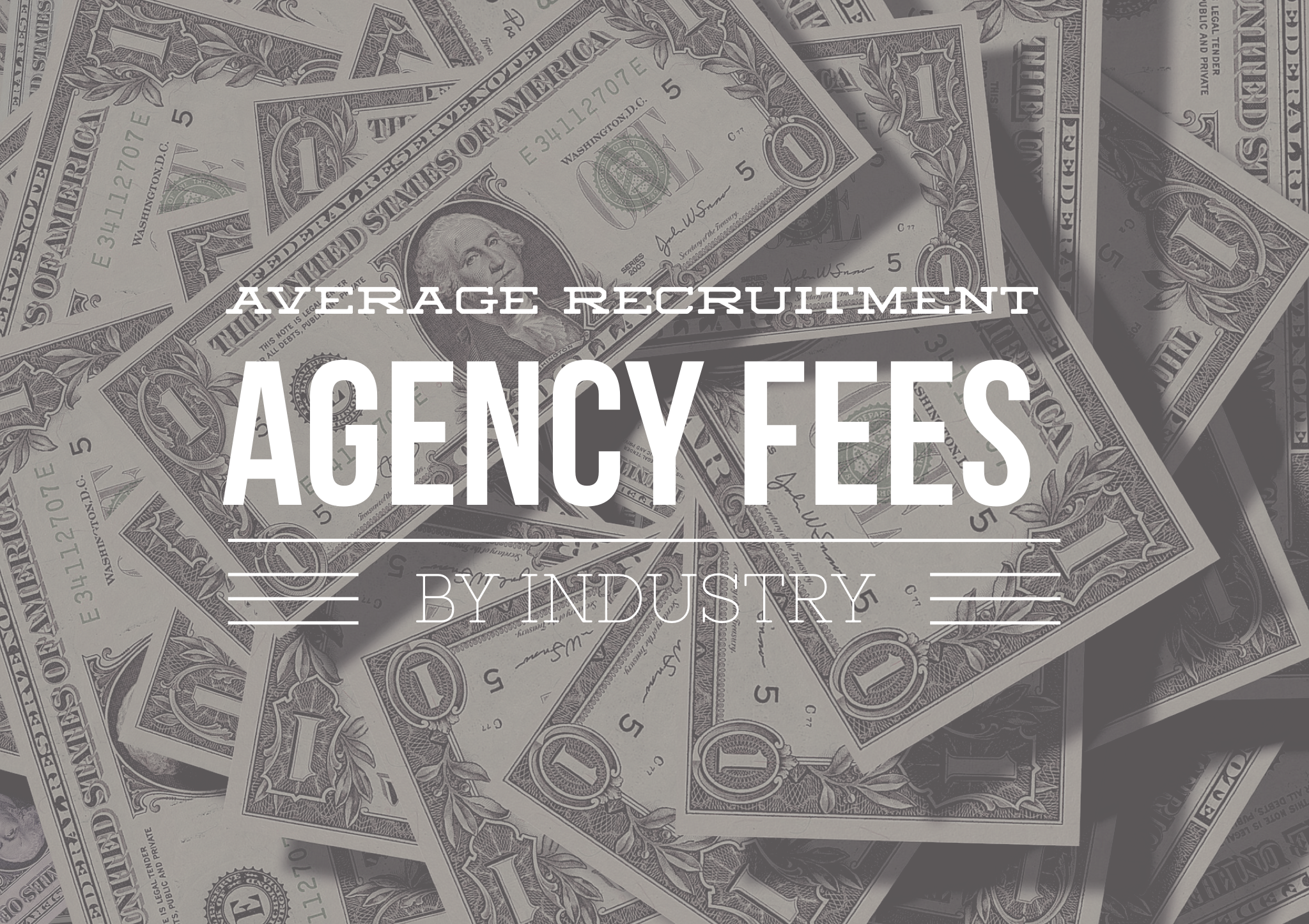Organizations typically turn to direct hire agencies when open jobs are highly specialized, key skilled positions, or critical to operations. Agency fees are generally paid as a percentage of a candidate’s first year salary, so competitive industries with higher salaries will also mean higher fees. Jobs filled this way typically have an average salary of $100,000 or higher, with average fees of 20 percent.
We saw the highest recruitment agency fees in the pharmaceutical and biotechnology industry, which has been the case for the past 5 years. The average agency fee in 2014 was $31,449, a 10.8% increase over the average of $28,392 in 2013. So, while this industry is already extremely competitive, it is becoming more so at a faster pace than any other industry. Due to this trend, companies in this industry can expect recruitment to become increasingly difficult.
The next highest recruitment agency fees were in the Energy, IT, and Financial Services industries and were all closely grouped together at just above $24,000.
The Energy and IT industries had an above average growth in fees in 2014 over 2013, as did aerospace/aviation/defense, so we can expect higher competition than usual for candidates in these industries. The Aerospace/Aviation/Defense industry had a 9.8% increase in fees over 2013, while the IT industry had an 8.6% increase and the Energy industry had a 7.7% increase.
However, the average fees in Financial Services decreased 3.5%, moving it from the second highest fee in 2013 to the fourth in 2014. While the Financial Services industry is still extremely competitive, it may be becoming less competitive or leveling off.
Industries with below average recruitment fees include:
- Manufacturing and production, with a $19,924 average fee
- Retail/Wholesale, with an $18,438 average fee
- Professional Services, with a $17,797 average fee
- Healthcare/Health Services, with a $17,468 average fee
It’s important to keep in mind, however, that average recruitment fees will vary by job category as well. Positions in research and development, for instance, had an average recruitment agency fee of $39,032, followed by executive positions with an average fee of $30,567. On the other end, Office/Clerical/Administrative positions had a fee just over $18,000.
Companies using direct hire agencies to recruit top talent should review fee data by both industry and position to ensure that their recruitment fees are competitive. For instance, a company hiring an executive in the Pharmaceutical/Biotechnology industry should expect to pay higher than average fees since both the industry and job category are so competitive.
On the other hand, a health services company hiring for an administrative role could pay well under the $17,000-18,000 average for that industry/job category.
To see more data on average recruitment fees by industry and job category, download Agency Benchmarking Report.

.png?width=801&height=222&name=BoJo%20-%20A%20R.com%20Co%20Logo%20(1).png)
